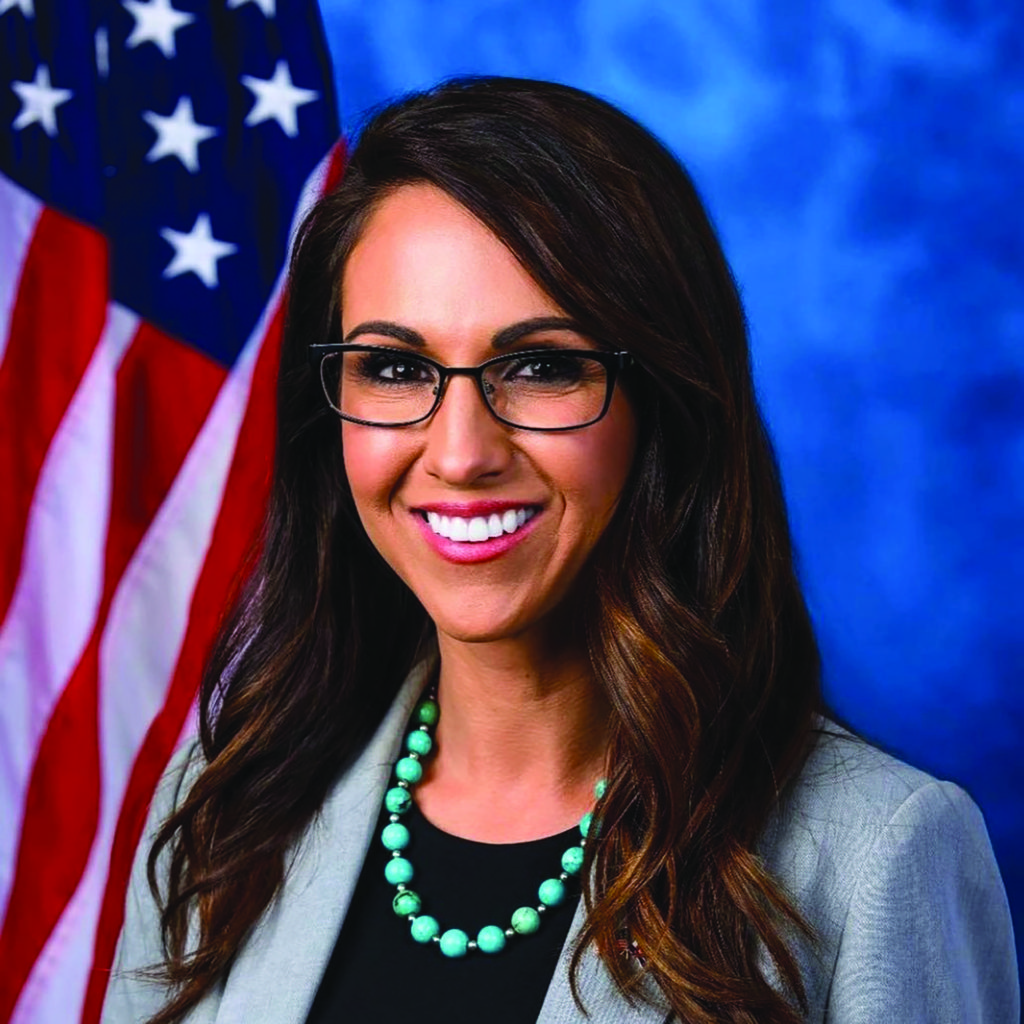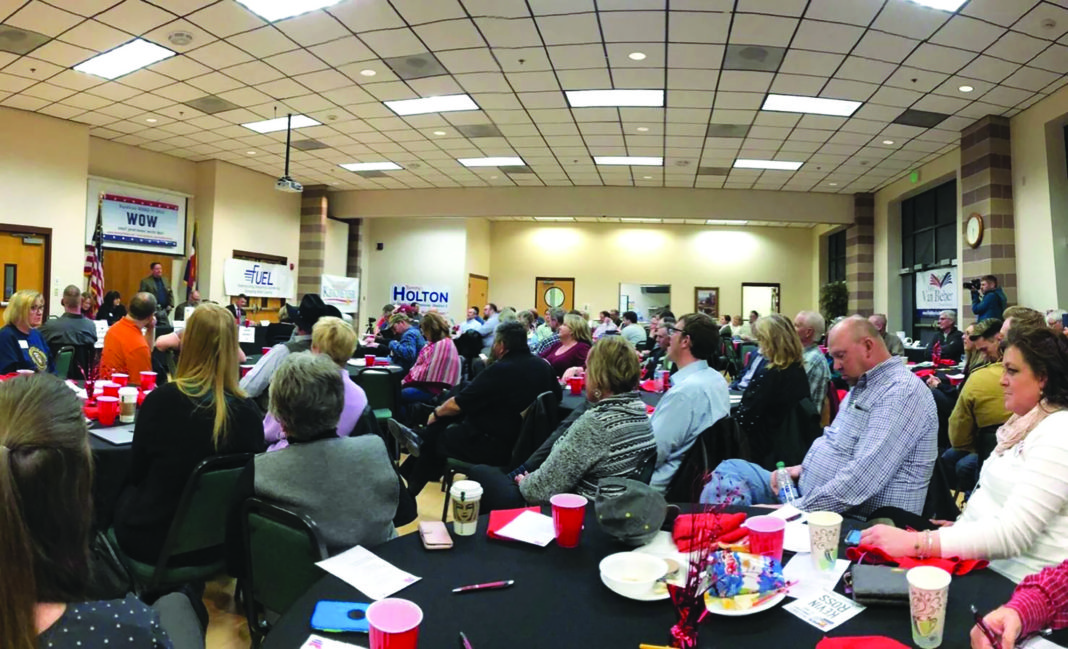Grand Junction’s District 3 sees rapid changes as multiple people drop out
There are changes to District 3 on the horizon for this upcoming election.
Representative Lauren Boebert announced in Dec. that she is moving to the eastern plains of District 4 to run for an upcoming vacancy in the House. Grand Junction Mayor Anna Stout ended her campaign for District 3 representative. Finally, Donald Trump may not appear on the presidential election ballot pending a decision from the U.S Supreme Court.
When Representative Ken Buck of Colorado’s District 4 announced in Nov. of last year that he was retiring at the end of his term, several people initiated campaigns to replace him. There are currently 15 total candidates campaigning for this vacancy. Projections indicate that a republican win is extremely likely.
Boebert filmed a video in her home announcing her intention to switch her campaign to the fourth congressional district in Dec. She cited a difficult year–which includes her divorce and a string of bad press–as her reasoning to switch. She moved with her children and infant grandchild to Weld County.
A debate was held in late Jan. for the GOP candidates in Fort Lupton. Notable attendees included Boebert, Representative Mike Lynch and Jerry Sonnenberg. During the sold out event, participants were asked about their top priorities and stances on issues such as abortion and election validity.
According to coverage from Colorado Politics, Boebert has been accused of carpetbagging the district by other GOP members running against her as well as locals. A straw poll was taken at the end of the debate and of the 117 votes counted, Boebert received 12 putting her in the middle of the pack.
Stout announced she would be withdrawing her candidacy after Boebert announced her move.
“Boebert’s decision to run in a different congressional district altered the landscape of this race, I got in this to remove Boebert from office, and while this wasn’t the way I expected to do that, she is no longer the third Congressional District’s problem,” Stout said in a statement.
This guarantees Adam Frisch the democratic nomination for District 3 as he is now unopposed. He was already poised to win due to his campaign having significantly higher funding. There are still seven people campaigning for the republican nomination.
“CD 3 went from one of the most watched races to one of the most up in the air races overnight with the departure of Boebert. She has decided to move out of the districts and what this has done is created a vacuum within the Republican party, and it’s really made the Democratic challenger rethink his strategy for this race. Adam Frisch’s previous strategy was an anti-Boebert platform and now he really needs to think about–with Boebert out of the race–what is his platform going to be? And how will he resonate with voters who have shown in the past, the recent past, that they elect Republican candidates,” professor of political science Dr. Justin Gollob said.
The Colorado State Supreme court voted to disallow Donald Trump from appearing as an option on the primary election ballot in Dec. According to an interview with Colorado Public Radio, Krista Kafer, a plaintiff in the case, said that Trump is ineligible to run for the presidency. She cited Section 3 of the 14th Amendment as precedent for the removal of Trump’s name.
That section of the Constitution states that anyone who has previously held a public office and engaged in either insurrection or rebellion against the federal government will not be allowed to hold a public office again.
Trump’s legal team appealed the case to the U.S. Supreme Court and hearings began on Feb. 8. According to The Washington Post, the court seems “poised to allow Trump to remain on the Colorado ballot.”
Florida Governor Ron DeSantis withdrew his candidacy after Trump went on to win an Iowa Caucus.
As of now, the Presidental race seems to just be between Trump and President Joe Biden.
“I think both candidates are way too old to be holding so much power over our futures,” senior secondary education student Caleb Barker said. “These are candidates my grandparents can relate to and they’re in their 70s. How can I possibly trust a leader to make the right decision when he grew up during a completely different time?”
Barker went on to say that he would love to see a third party candidate win, but that it seems impossible to hope for that when we are stuck in the endless cycle of a two party system.
“I think a lot of good could come from a candidate that is young enough to actually understand modern issues and would want to make real change because they would have to live through their solutions,” Barker said.
Colorado’s presidential primary is set for March 5, 2024. Mail-in ballots were sent out on Feb. 12.
“I think young voters should care about the election because we are the ones that are gaining the voice in America and we need to use that voice to effect real change. There are so many issues that are being squarely placed on younger generations to figure out and solve and yet we continue to place people that are two to three generations removed from us in positions to solve those problems,” Barker said.
The young voting core is in a position to begin to influence the outcome of elections, as they are becoming the majority. Their voices have become increasingly prevalent in recent years, and as they continue to show at the polls, the new generation of voters and politicians can begin to solve problems that the world is currently facing, rather than just leave everything to the last vanguard of the old governmental leaders.






